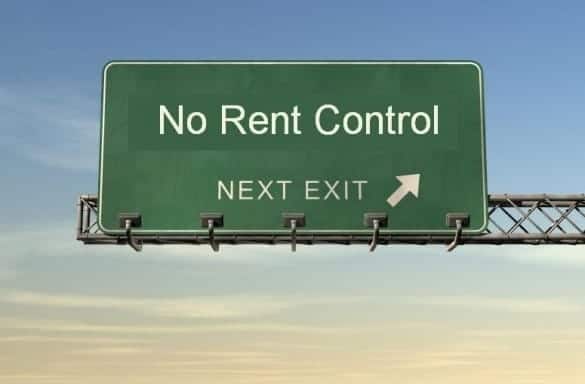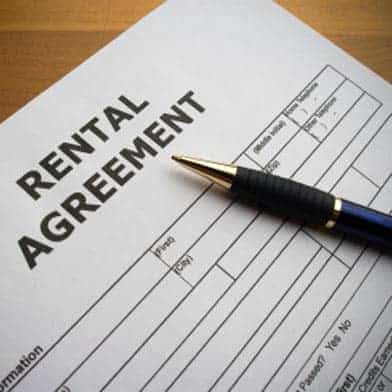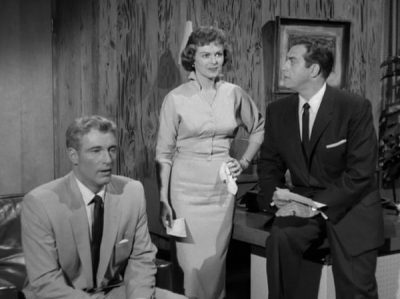I have a strong suspicion you are going to tell me I’m SOL but hey, I’m the girl who called the ACLU when my principal tried to suspend me because I forgot (I was studying in homeroom) to stand for the Pledge of Allegiance
My husband and I live a newer condominium building, in a 2BR/2BA apartment. Our rent is currently $3200 set to go up to $3800 3/1/12. My husband moved into a 1BR in the building in 2004 and into our current apartment in 2006. I moved into the apartment in 2008. Despite asking several times, I was never put on the lease nor given a new lease. I do have a letter from the management company stating that I have lived here since 2008, so that I could get medical insurance as a domestic partner to my now husband.
The building is mixed commercial/residential and has approximately 40 residential rental units. Our lease is titled ‘Condominium unit residential lease agreement and deposit receipt’ but there is an Exhibit B stating that: “the unit you may rent has been approved in the past by the city and county of San Francisco for sale to the public as a condominium project. The Landlord/Owner of your condominium does not, however, have the approval it would need from the state of California for the sale of the condominium units, as Landlord/Owner does not presently intend to sell these units as condominiums…’
For several months I have been asking the manager of the on-site management company in writing, to repair some small things (a broken drawer in the kitchen cabinet and in one bathroom, some warped wood on several kitchen cabinets from the leaking dishwasher that took some time for them to fix, some grout in the bathroom that is mildew stained and won’t come clean, some mold spots forming on the bathroom ceiling) in the apartment and paint, since it was never painted before we moved in.
Finally the building engineer and the owner of the management company arranged to do a walkthrough of the apartment to see what they could do. What they proposed was that many things in the apartment needed updating. It is my understanding that they presented a much larger scope of work than our repair requests to the owner.
The engineer told us that the mildew problem was coming from behind the tile and eventually the tile would just fall out. He said indicated that the tile would have to be ripped out and replaced in the shower and that the tile on the floor would look awful next to the new tile, so the whole bathroom would need to be re-done. He also explained that the kitchen drawer would cost more to repair than to replace all the cabinetry.
Apparently the engineer submitted an estimate in the range of $70K. Clearly he was excited at the prospect of a ‘fun’ project and was immediately asking me to go tile shopping.
Well wouldn’t you know that before long, we weren’t hearing from the engineer anymore. I have always had to make several requests before I got a response from these people, but the change was so dramatic we knew something was up.
My husband asked the engineer why we hadn’t heard from him, he said that in reviewing our apartment the landlord realized that we had one of the best rents in the building and wanted to raise our rent.
Finally the onsite manager and the woman who runs the daily operations of the on-site management office came up for coffee and to give us an explanation for their lack of response. They said that they had never seen the owner react this way and that he was usually fine with completing repairs and upgrades for long-standing tenants. Now they said the owner wanted to raise our rent from $3200 to $4000 but they ‘talked him down’ to $3800.
BTW the condo owner has just fired his company and hired Laramar (god help us) to run the building. The stories I’ve heard…oy vey!
On December 5th we received a letter, postmarked November 30th, stating that our rent would increase to $3800. I told the managing agent, in writing, that they must give us at least 60 days notice, plus 5 days for mailing, to increase our rent more than 10%. They sent me another letter saying the increase would take effect March 1, 2012.
I know this all sounds like fluff. We are not in crisis here. There are not really ‘habitability’ issues. The rent wasn’t raised for 5 years.
My problem is the complete lack of response to the repair issues! I am not an unreasonable person. Had the landlord approached me saying he would make the repairs and maybe meet us halfway on painting the apartment (or not – just respond), I would shut up and pay the higher rent. I guess I should count myself lucky it wasn’t raised sooner.
I feel that this is a retaliatory move by the landlord and from reading your columns I know that THAT is illegal. I also think there are many people in our predicament. We’re paying top dollar for our apartments, but have very few protections.
So I looked at the online resources you recommended and find myself confused by what I’ve read on the SF Tenants Union website. They state that a condominium is protected by full rent control if the subdivider of the building owns the condo unit(s).
Two questions here: ‘Condo’ is used so loosely it’s hard to know if we live in one. The lease says condo, but the Exhibit B says it’s not…yet. So are we included in the rent control ordinance as a condo unit, owned by the building subdivider?
Unfortunately, SOL could be the one word answer to your question, but that wouldn’t be very helpful.
Using the specific information you provided (since redacted), I determined that your building was built in 1988. You know what that means–no rent control, no just cause evictions, no nada. As I’ve said before, regarding your tenant protections, you may as well be living in Lompoc. The federal prisoners there may have more rights than the tenants.
This leads me to an important aside. As I may have mentioned before, I worked in the construction trades for years before I started doing this. It’s fairly easy for me to recognize the age of a building. I’ve learned, however, not to take this ability for granted in others. I you, readers, aren’t sure about the age of the building in which you live, you should check that before you assume you live in a rent controlled building. SF Assessor-Recorder’s website. Click the map, enter the address and voila!
I don’t think your confusion about the condominium issue is based on an assumption that the building is old enough to be rent controlled. It’s apparent from google maps that the building is relatively new.
Without going into too much detail, you are looking at an exception in the Costa-Hawkins Rent Housing Act, Civil Code section 1954.52(a)(3)(B)(ii) that exempts from Costa- Hawkins(that is keeps a dwelling under rent control) “[a] condominium dwelling or unit that has not been sold separately by the subdivider to a bona fide purchaser for value.” But that only applies to buildings in San Francisco built before June 13, 1979, usually condominium conversions.
The restrictions upon the sale of units derive from California Department of Real Estate and California Subdivision Map Act requirements.
Is this a retaliatory rent increase? Unlikely. Your complaints don’t seem to rise to the level of substantial breached of the implied warranty of habitability. If you want to test that theory, call a Housing Inspector at DBI to make a complaint.
As I see it the only retaliation by the owner is directed at the management for company for trying to rip him off. $70,000.00 to make the relatively minor repairs you requested. Bah, humbug. After all, the manager was fired and replaced. Unfortunately, you’ll have to pay the price.
Request the repairs again, in writing. Continue to do so until Laramar either relents or truly retaliates.
Make it your mission to email your legislators every hour of every day demanding a repeal of Costa-Hawkins so that rent control can be uniformly applied to all buildings in San Francisco and other rent controlled jurisdictions.








 The Costa Hawkins Rent Housing Act, a bi-partisan law enacted in 1995 by the band of pandering griftocrats we call our state legislators, that eviscerated local rent control.
The Costa Hawkins Rent Housing Act, a bi-partisan law enacted in 1995 by the band of pandering griftocrats we call our state legislators, that eviscerated local rent control.
 This is a dance you probably shouldn't try to do by yourself. Almost all tenants need a lawyer to lead. You likely have a better chance buying a house than you do prevailing in an unlawful detainer by defending yourself.
This is a dance you probably shouldn't try to do by yourself. Almost all tenants need a lawyer to lead. You likely have a better chance buying a house than you do prevailing in an unlawful detainer by defending yourself.